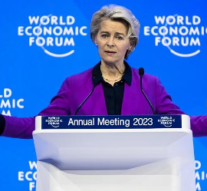
EU industrial plan for strategic autonomy
Employment and Social Affairs 27 January 2023Estimated time of reading: ~ 2 minutes
France, the country of origin of the European Commissioner for internal market Thierry Breton, wants the EU to adopt a “Made in Europe” industrial strategy in response to the US scheme of subsidies for green investment. This is a move to keep industrial firms from leaving Europe and reduce members’ dependence on outside suppliers: EU leaders will discuss such industrial policy at the next summit in Brussels on 9th of February.
The EU is worried that Washington’s $369 billion Inflation Reduction Act – subsidising products from batteries to electric cars, solar panels and wind turbines – will draw companies away from Europe. But this is just a part of a wider EU’s strategy to gain industrial autonomy in a changing world. “For decades, we’ve built a system based on free trade, while striving to ensure a level playing field for all, which meant enforcing a strict framework for state aid rules”, recently said the President of European Council, Charles Michel, stressing that “China continues to directly invest state money in key industries of strategic importance” and “our American ally has also recently embraced a massive state aid policy to foster its green transition”. For this reason, according to Michel, “the Eu must act smart, fast and on a massive scale to strengthen our economies, notably by investing in clean and digital technologies. We must also reinforce our manufacturing capacities to preserve our prosperity, while also ensuring our strategic autonomy”.
Even European Commission President, Ursula Von der Leyen, highlighted at the World Economic Forum in Davos that “the EU has a plan”. “A Green Deal Industrial Plan, our plan to make Europe the home of clean tech and industrial innovation on the road to net zero. This plan, according to Von der Leyen, has four key pillars: the regulatory environment, financing, skills and trade. “The story of the clean-tech economy is still being written”, she said adding: “Europe already has everything it takes – talent, researcher, industrial capacity. And Europe has a plan for the future. And this is why I believe the story of the clean-tech economy will be written in Europe”.
Written by: Valerio Palombaro


